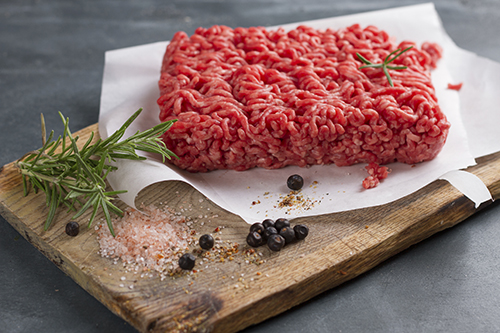
Salmonella is one of the most common causes of foodborne illness in the United States, responsible for an estimated 1 million cases of sickness every year. In people with weakened immune systems, young children, and elderly individuals, it can be fatal. A secondary product from dairy cows, ground beef, is unfortunately one of the foods that can become contaminated with salmonella.
Through some promising research, Assistant Professor Amilton de Mello at the University of Nevada, Reno, has found a way to use an old technology in a new way to drastically reduce the presence of salmonella in meat. His work was first presented at the American Meat Science Association's conference late last month.
De Mello used bacteriophages, which are natural bacterial predators, to treat refrigerated meat products and poultry trim infected with four types of salmonella. Bacteriophages are viruses common in the environment that invade and destroy specific bacterial cells. They cause no harm to humans, animals, or plants.
By treating the beef, pork, and poultry with bacteriophages before grinding, the presence of salmonella bacteria was reduced by as much as 90 percent in the final ground meat products. If this treatment can be adopted into the meat processing industry, it could significantly lower the risk of salmonella in meat products.
July 11, 2016








